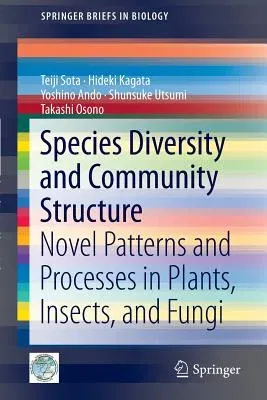Teiji Sota
(Author)Species Diversity and Community Structure: Novel Patterns and Processes in Plants, Insects, and Fungi (2014)Paperback - 2014, 16 September 2013

Qty
1
Turbo
Ships in 2 - 3 days
In Stock
Free Delivery
Cash on Delivery
15 Days
Free Returns
Secure Checkout

Part of Series
Springerbriefs in Biology
Print Length
61 pages
Language
English
Publisher
Springer
Date Published
16 Sep 2013
ISBN-10
4431542604
ISBN-13
9784431542605
Description
Product Details
Book Edition:
2014
Book Format:
Paperback
Country of Origin:
NL
Date Published:
16 September 2013
Dimensions:
22.61 x
14.99 x
0.76 cm
Genre:
Ecology
ISBN-10:
4431542604
ISBN-13:
9784431542605
Language:
English
Location:
Tokyo
Pages:
61
Publisher:
Series:
Weight:
158.76 gm